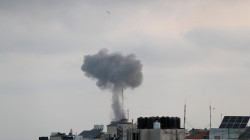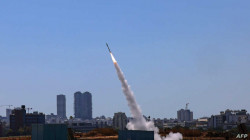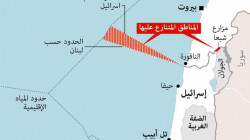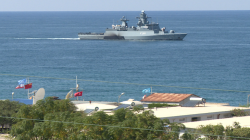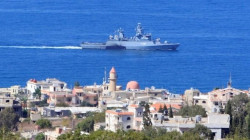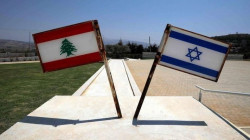Anticipation in Lebanon: Is the Pre-Nasrallah speech different from what follows?
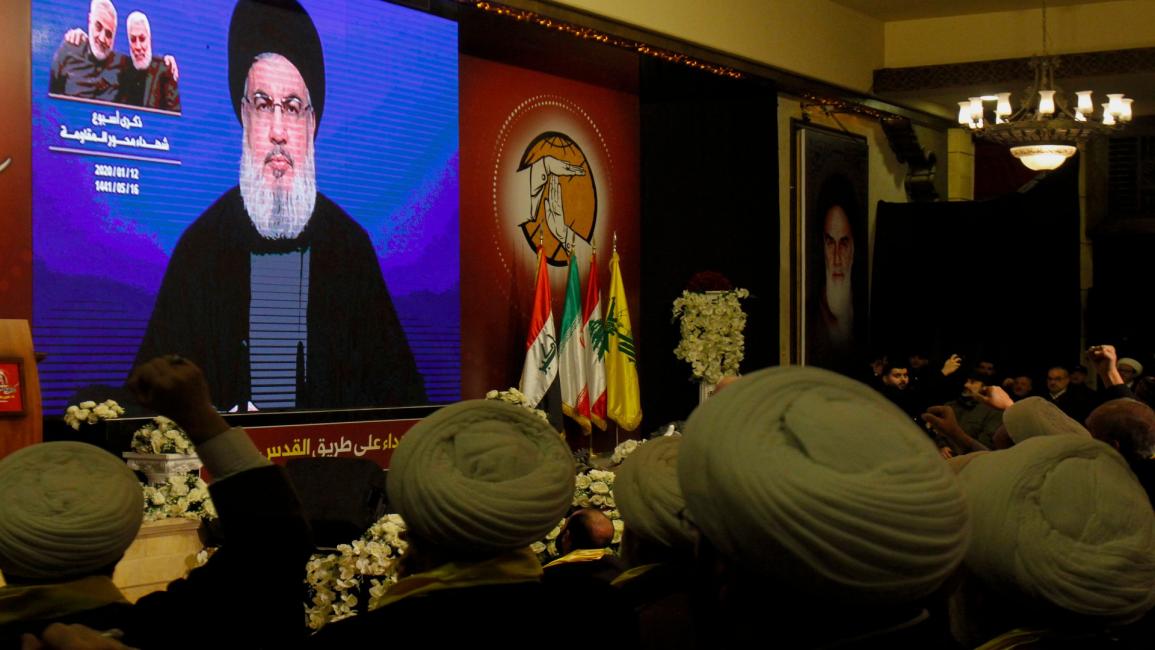
Shafaq News / Amidst the turbulent backdrop of the ongoing conflict in Gaza, Lebanon teeters on the precipice, gripped by mounting tension and ominous signs hinting at an impending escalation of hostilities. The global gaze remains fixed on this volatile region, with widespread conjecture swirling around an imminent address by Hezbollah's leader, Hassan Nasrallah, slated for Friday.
The air is thick with anticipation, pregnant with the possibility that Nasrallah's words could either ignite a chain reaction, paving the way for intensified Israeli incursions into Lebanese soil, or serve as a firm declaration of Hezbollah's commitment to the current fragile equilibrium
The expectations and interpretations vary widely. Some believe that Nasrallah's speech may trigger deeper Israeli strikes within Lebanon and a more significant involvement in the conflict. In contrast, others view it as an expression of Hezbollah's commitment to abide by the existing rules of engagement, without any intent to broaden the conflict.
Just yesterday, the White House National Security Council Communications Coordinator, John Kirby, stated, "We are closely monitoring the speech by Hezbollah's Secretary-General Hassan Nasrallah, and he is free to express his views. However, our message to him and others is clear: we urge against expanding the conflict in the region. On the Israeli side, their interpretations of the possibilities are multifaceted, but their attention is focused on the warnings issued by senior Israeli officials to Lebanon, cautioning against involvement in the Gaza battle."
While the Lebanese await Nasrallah's address, it remains a challenge to precisely discern the reasons and objectives that have prompted him to speak over three weeks into the conflict between Israel and Hamas, along with other resistance factions in Gaza. Consequently, the post-speech possibilities remain shrouded in uncertainty.
As is customary in Lebanon, the populace is divided, torn between expressions of solidarity with the Palestinians in Gaza and the imperative to support them, and those advocating for Lebanon to stay clear of the conflict and all its potential repercussions. However, it is estimated that at least five Lebanese civilians have fallen victim to Israeli strikes in southern Lebanon, including Issam Abdallah, a journalist with Reuters. Furthermore, the tragic news of a young boy's death today, a result of an Israeli airstrike on the village of Yatar in the south, highlights the gravity of the situation.
A discernible pattern has emerged in recent days, where many Lebanese residents have begun stockpiling food and medicine in their homes, as a precautionary measure in anticipation of worsening conditions. The intensity of this trend has grown in recent days, with some individuals even purchasing candles to prepare for potential power outages, should war erupt, and Israel target power stations or fuel depots, as they have done in previous conflicts with Lebanon.
Nearly every day, ministers from Prime Minister Najib Mikati's government address the public regarding the ongoing preparations to devise an emergency plan in case of war. These preparations encompass stockpiling food, medicine, and fuel, establishing accommodations for potential refugees, and assembling rescue and medical teams, as well as setting up various healthcare centers.
Despite these announcements, they fail to provide solace to the Lebanese, who are acutely aware of the political factions' inability to reach an agreement to elect a new president for over a year. Prime Minister Mikati's government grapples with constitutional complications that hinder its capacity to convene and make vital decisions. Neither external mediation nor the looming specter of war seems to prod the politicians to address the prevailing political crisis.
Amid speculations in Beirut about the presence of Ismail Qaani, the Quds Force Commander in the Iranian Revolutionary Guard Corps (IRGC), since his arrival in the city, many Lebanese, like others in the region, are keenly monitoring Tehran's stances regarding the ongoing conflict. Iranian Foreign Minister Hossein Amir Abdollahian's remarks after meeting with Hamas Political Bureau Chief Ismail Haniyeh during his visit to Qatar emphasize that "the region is at a historic decision-making stage, and the resistance factions in the region decide for themselves and do not wait for political decisions."
He added, "In the event of continued Zionist crimes and the expansion of the conflict, no party will be spared from the fires of war and its consequences. Washington, unlike its calls for restraint, has become a party to the war and is not in a position to call for calm."
Lebanese citizens remain uncertain, anxiously awaiting updates from Washington and Tel Aviv, as well as missile messages from Yemen in the south. They closely monitor developments from the Iraqi and Syrian fronts, especially the near-daily targeting of US military bases.
It is natural for the Lebanese to feel great concern, particularly since the US announced the deployment of two aircraft carriers and other warships in the Eastern Mediterranean during the early stages of the Gaza conflict, accompanied by a US warning to "prevent any third party from intervening."
The most significant shock for many Lebanese comes from France, often perceived in Beirut as Lebanon's benevolent guardian. During his recent visit to Israel, French President Emmanuel Macron suggested forming an international alliance to combat Hamas, similar to the Global Coalition formed more than eight years ago to fight ISIS in Iraq and Syria.
Regardless of the nature of Nasrallah's speech on Friday, his supporters, along with many Lebanese, consider Lebanon to be actively engaged in the current conflict. It is not a coincidence that the so-called "war media" distributed a detailed infographic two days before the promised speech, outlining the results of 105 attacks by Hezbollah in the past 20 days against Israeli positions on the border and within Israel.
The infographic includes information that 120 Israeli soldiers were killed or wounded, 13 tanks and armored vehicles were destroyed, 33 radars were taken out, a drone was shot down for the first time, 140 cameras were destroyed, along with 69 communication systems, 17 jamming systems, and 27 intelligence systems. Most importantly, according to the Lebanese resistance's perspective, these attacks led over 65,000 Israeli settlers to evacuate 28 settlements along the Lebanese border.
(Exclusive to Shafaq News Agency).
